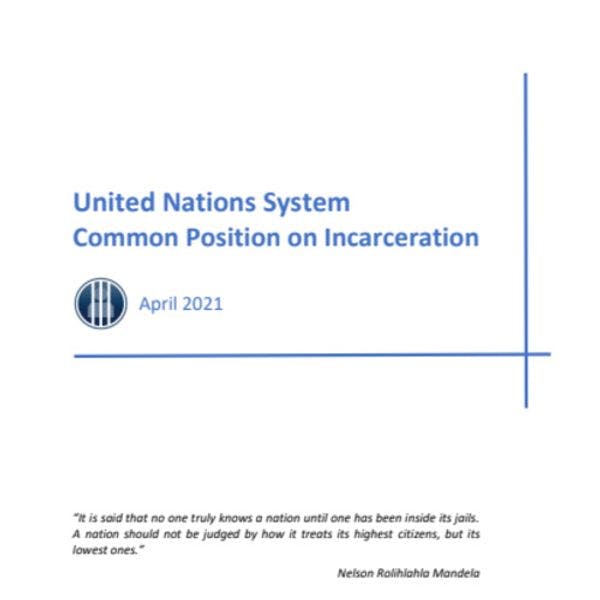UNODC
Posición común del sistema de la ONU en materia de encarcelamiento
El sistema de la ONU formula recomendaciones orientadas a mejorar las condiciones carcelarias y a reducir poblaciones en prisión. Más información, en inglés, está disponible abajo.
Judicial and prison systems around the globe continue to face fundamental challenges that undermine the ultimate purpose of incarceration as a sentence, namely, to protect society from crime and to prevent recidivism by supporting rehabilitation and preparing prisoners for their social reintegration upon release.
Overincarceration, overcrowding, poor conditions and the serious neglect of prison services are causing prisons to be a weak link in criminal justice systems and a low priority in reform efforts. The consequences for public safety, health and human rights, as well as the financial and socioeconomic costs resulting from these deficiencies, are immense. In some countries, including those in conflict, post-conflict and other crisis situations, severe prison deficiencies have had a negative impact on peace, security and stability. The disproportionate impact of the coronavirus disease (COVID-19) in prison settings has demonstrated what can happen when already overburdened and ill-equipped prisons are confronted with crises. Addressing the challenges associated with incarceration, including its overuse, should be a key part of the effort to “build back better”.
Many problems manifested in prison settings are the result of socioeconomic disparities and systemic deficiencies in criminal justice systems. Societal, racial and other forms of discrimination may be equally reflected in criminal justice policies and practices. Effective and sustainable reform efforts therefore require a holistic reform approach aimed at addressing the root causes of overincarceration and overcrowding, and shifting policies towards prevention and alternatives to imprisonment.
The United Nations commitment to “leave no one behind” recognizes prisoners as a particularly vulnerable and marginalized group that is subject to discrimination and exclusion. Sufficiently resourced and well-managed prison services and State policies that advance noncustodial measures are important enablers of the 2030 Agenda for Sustainable Development.
Descargas
Temas
Regiones
Perfiles relacionados
- United Nations
